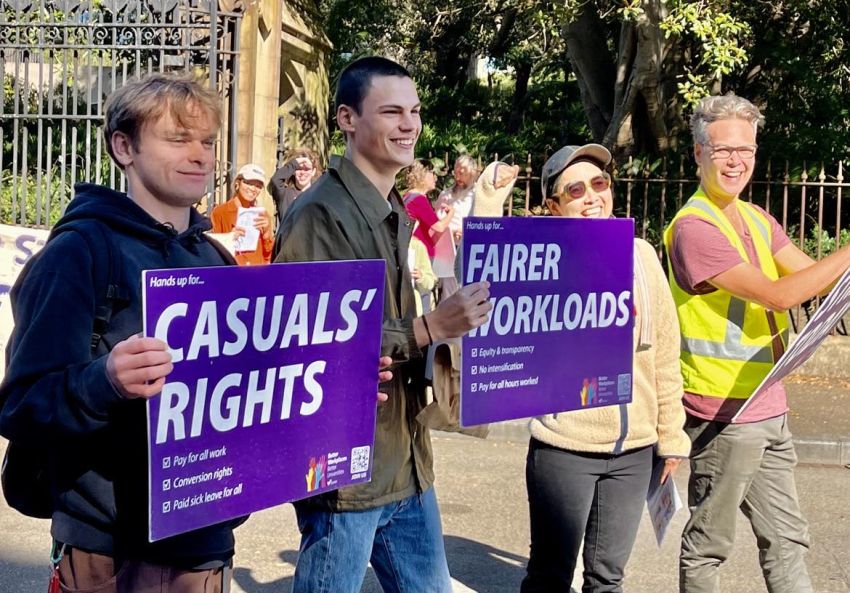
The Australian Council of Trade Unions (ACTU) on July 24 welcomed federal Labor’s plan to give casual workers who work in the same job for more than 6 months, the option of permanent work rights.
Others say Labor needs to go further and resolve the “casual problem”.
The reform will legislate a definition of who can be classed as casual. It is being welcomed overall with the exception of bosses groups including Australian Chamber of Commerce and Industry, is closing a loophole that leaves people stuck as casuals when they really work permanent regular hours.
Labor’s workplace minister Tony Burke said this will help more than 850,000 casual workers. The conversion will not involve back pay, and no one will be forced to become a permanent worker and lose their loading.
There were more than 2.6 million casual workers in May, according to ACTU. It said that this equates to a little under 1 in 4 of the work force who has little to no job security and does not have access to basic rights, such as sick leave.
Australia has one of the highest rates of casual workers among the Organisation for Economic Co-operation and Development (OECD) countries, according to 2018 data.
ACTU secretary Sally McManus said the amendment, included in Fair Work Legislation Amendment (Protecting Worker Entitlements) Bill 2023, would “put the decision in the hands of workers — do they want to remain casual or not? Right now, too many workers are working jobs that are casual in name only, denying workers both pay and rights”. She said employer groups had “been in denial” for too long.
Workers hired as casuals, but who have regular or predictable shifts, will be able to ask employers to convert them to permanent after six months. They would voluntarily give up their casual loading (usually 25%) in return for leave, sick pay and job security.
Some argue Labor’s workplace reforms need to go much further.
David Peetz, Laurie Carmichael Distinguished Research Fellow at the Centre for Future Work and Professor Emeritus, Griffith Business School, wrote in The Conversation on July 31 that not enough was being done to “resolve the ‘casual problem’”.
The premise for hiring casuals is that the work is intermittent. Yet, using unpublished data from the Australian Bureau of Statistics Peetz and co-author Robyn May showed only 6% of leave-deprived workers (1.4% of all employees) are “narrowly-defined casuals” and that the majority of leave-deprived workers have been with their employer for over a year.
“The majority expect to be with the same employer over a year into the future. Around half have stable hours from one week to the next and are not on standby.”
They argued that the term “permanent casual” is more accurately phrased as “permanently insecure”. “The high rate of ‘casual’ employment enables Australia to have an internationally low level of leave coverage.”
He said in most other wealthy countries all workers — including temporary workers — are entitled to annual leave, and Labor’s changes do not go far enough saying this country needs “universal leave entitlements”.
He said on average, low-paid “casuals” get less pay than equivalent permanent workers, despite the loading.
There is a place for a casual loading, where work is unpredictable but, Peetz argued, “everyone else should get annual and sick leave, and minimum award wages should be high enough that low-wage workers don’t have to rely on the casual loading to get by.
“The challenge should be about how we transition to that situation,” Peetz said.